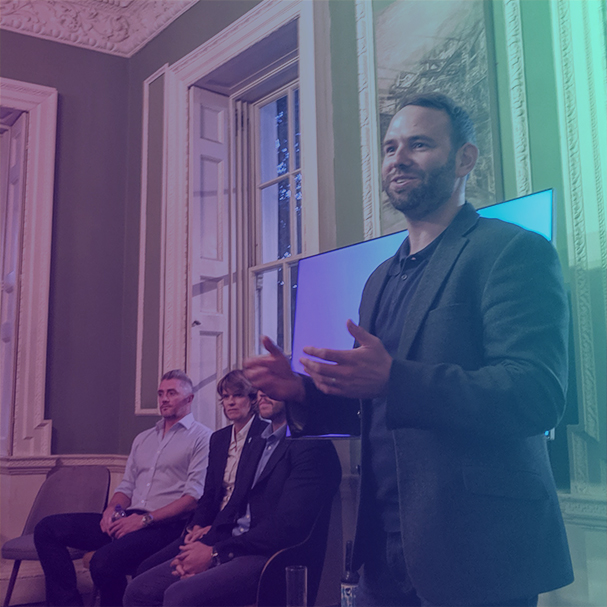Intro
Metrics are key to driving performance in professional sports. Time, distance, weight and speed are all critical for athletes to track and push to the maximum – but what about trust?
More than ever, teams of athletes are driving their performance with ‘social cohesion’. Professional coaches are recognising that athletes are best motivated by team purpose and understanding; a team that lacks trust will struggle to motivate themselves to succeed. Lucozade can only push an athlete’s muscles so far – from there, it’s a question of mind over matter.
How can we apply these newfound principles to driving team performance in data?
People drive performance.
At the October CDO Hub panel discussion, Christian Hughes (a qualified psychologist who helped drive Team GB to success) shared the approach to driving performance in the Team GB cycling crew. While other cycling teams focused on measuring muscle fibre density, Christian was part of a team that used ‘social capital’ as their key metric.
Athletes are expected to work together every day, push themselves past their limits, whilst also dealing with the stress that comes with everyday life. Team cohesion is fundamental for these athletes to motivate and drive each other forward: if a team can recognise when someone is having a bad day, they can offer support – and orient their approach so that performance isn’t massively affected.
The same is true for all teams, regardless of whether you’re in a roaring stadium or a fluorescent-lit office. People drive businesses forward. If you can understand, recognise and communicate with each other, there’s nothing stopping you from reaching new gains.
Level the playing field.
Will Fraser, former Saracens rugby player, went on to comment on the importance of team understanding in driving performance. For the Saracens, their path to victory was driven entirely by a change in culture – a new initiative to refine the team into a cohesive unit. The first step was creating an environment where players could communicate openly and effectively, nurturing what the coaches referred to as ‘psychological safety’.
This concept was critical for the Saracens to achieve success; to create a culture where every team member feels validated to share information on equal standing with the rest of the team. In fact, a handful their most skilled players were initially dropped from the team, as their attitude was seen to counteract the ‘social cohesion’ of the team. They had the skills, but they lacked the ambition or mindset that the team wanted to drive to achieve success.
Of course, you can’t expect everyone in your team to become best buddies in this process, but this shouldn’t be your goal. A people-driven culture is about trusting and communicating with your team when united by a common understanding; the focus here should be on fostering healthy working relationships.
Consider the Status Triangle.
It’s equally important to understand the diverse range of skills, backgrounds, salaries and responsibilities that makes up your team. For Sam Smith, former British Tennis Ladies’ No.1 and now a broadcaster on the BBC, ITV, Sky and beyond, the ‘Status Triangle’ is of utmost importance. Everyone within a team should be aware of who leads their team, who reports into who, and where they fit into the big picture.
This isn’t a question of hierarchy – regardless of whether you’re the boss or the new intern, any communication with the rest of your team is underpinned by understanding who they are, what they do, and why they’re doing it. For Sam, her first responsibility in broadcasting is learning which members of the crew will be working closest with her, and giving them recognition for their role in reaching a common goal – a successful broadcast.
In short, the Status Triangle is all about pushing you to be more aware of how your team functions. When you understand the people in your team, encourage them to communicate openly, and consider how they work and what they will contribute, your organisation has the best foundations to build a performance-driven culture and achieve your goals.
This article is based on a panel discussion at the CDO Hub, the London-based community of senior data leaders that come together every month to collaborate, network and grow.
Related.
See all
Cynozure research calls for stronger data leadership in US financial firms to unlock data benefits

A CLEAR™ Path: How to Foster a Robust Data Culture by Leveraging Concepts from Industrial and Organizational Psychology

Outsmarting the Bots on demand: A practical application of machine learning





